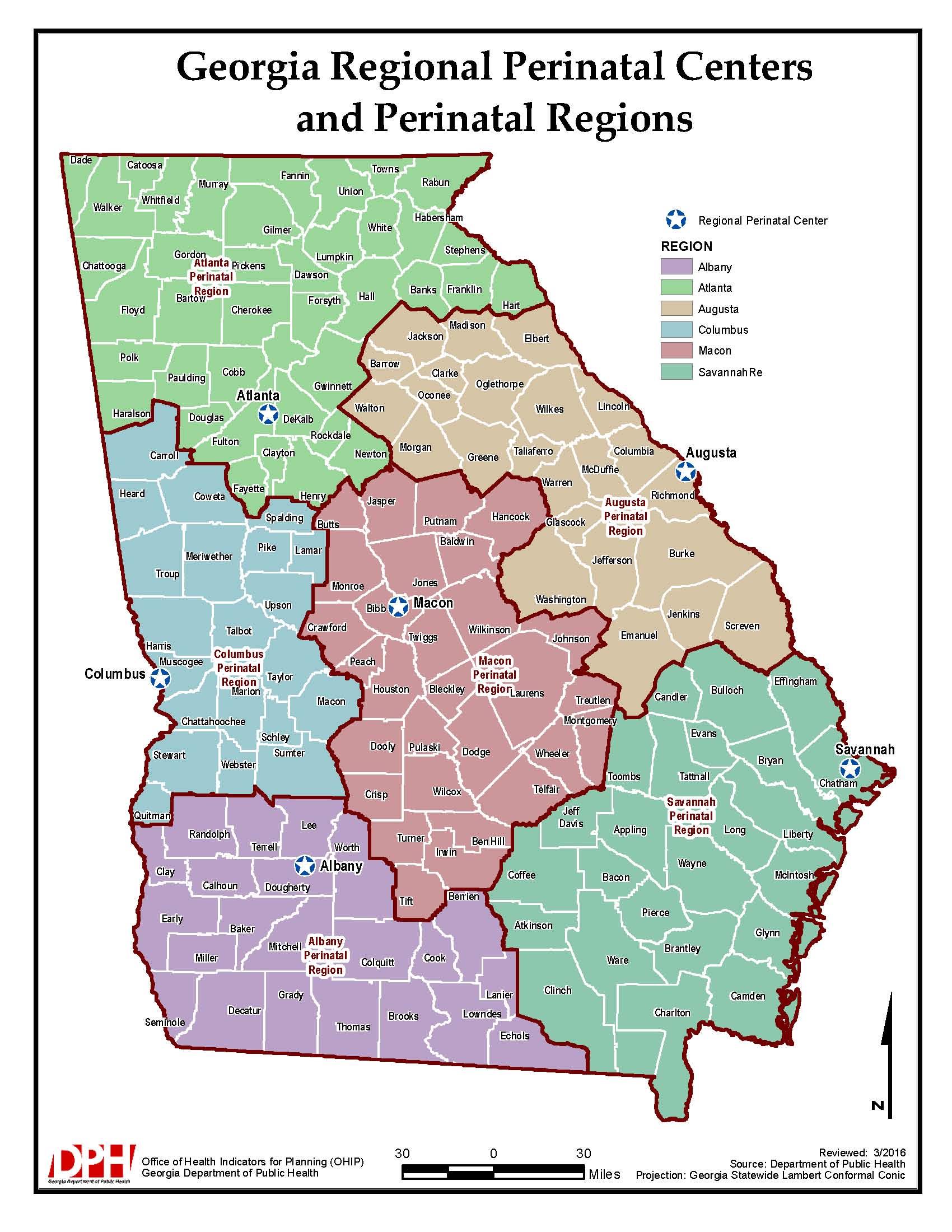The Emory Regional Perinatal Center (Emory RPC) is the coordinating center for the Atlanta perinatal region: a 39-county area surrounding metro Atlanta and extending north across the entire northern border of the state. It is tasked with promoting, supporting, and providing quality maternity, fetal, and newborn care across the perinatal region, regardless of race, creed, religion, and ability to pay or funding source. The Regional Perinatal Center is a partnership of the Grady Health System and the Emory University School of Medicine’s Department of Gynecology and Obstetrics (Division of Maternal-Fetal Medicine) and the Department of Pediatrics (Division of Neonatology). Neonatology services at Emory University Hospital Midtown and Children’s Arthur M. Blank Hospital are also part of the center.
The Emory Regional Perinatal Center at Grady Health System is the largest of the six regional high-risk maternal and infant care centers in the state. High-risk prenatal care is provided by members of Emory University’s Division of Maternal-Fetal Medicine (MFM). Outside of the RPC, members of the MFM Division also staff the ‘Emory Perinatal Center’, a maternal fetal medicine practice that sees patients at Emory University Hospital Midtown and Emory Decatur Hospital campuses.

Context:
Georgia is divided into six perinatal regions: Albany, Atlanta, Augusta, Columbus, Macon, and Savannah, each with a regional perinatal center (RPC) to coordinate access to appropriate maternal, fetal, neonatal, and infant health care. The Emory Regional Perinatal Center and other RPCs receive funding from the Georgia Department of Public Health (DPH) to support the provision of core services to their region:
- Comprehensive perinatal care, able to manage high-risk and complex perinatal conditions
- Coordination of care for pregnant women, their fetuses, and infants within the region
- Consultation and transport/transfer assistance for high-risk mothers and infants
- Outreach and education support to enhance the quality of care in facilities throughout region
- Neuro-developmental follow-up care for neonatal patients at high risk of handicaps
History:
Georgia’s statewide regional perinatal referral network was one of the first statewide perinatal systems in the country. The creation of statewide systems was based on ‘perinatal regionalization’, a strategy that involves stratifying perinatal care facilities by level of care based on the clinical services and specialization of care offered and then grouping them into geographic regions for purposes of coordination and collaboration. The aim is to promote optimal care and health outcomes by matching the risk of maternal, fetal, and neonatal patients to a facility within their geographic region with the appropriate level of care.
During the 1960s-1970s, as the fields of high-risk obstetrics and neonatology emerged and gained both recognition and funding, Georgia’s statewide perinatal system was imagined and took shape. Obstetricians and pediatricians from the Emory University School of Medicine were critical players in establishing Georgia’s regional system as well as in shaping the Atlanta region. Doctors John Daniel Thompson, Sr., Newton Long, Luella Klein, Alfred Brann, Jr., and their colleagues were key players in organizing high-risk care pathways for women and newborns, obtaining funding for maternal and infant services, and establishing the Emory Regional Perinatal Center to serve the ‘Atlanta’ (including north Georgia) perinatal region.



